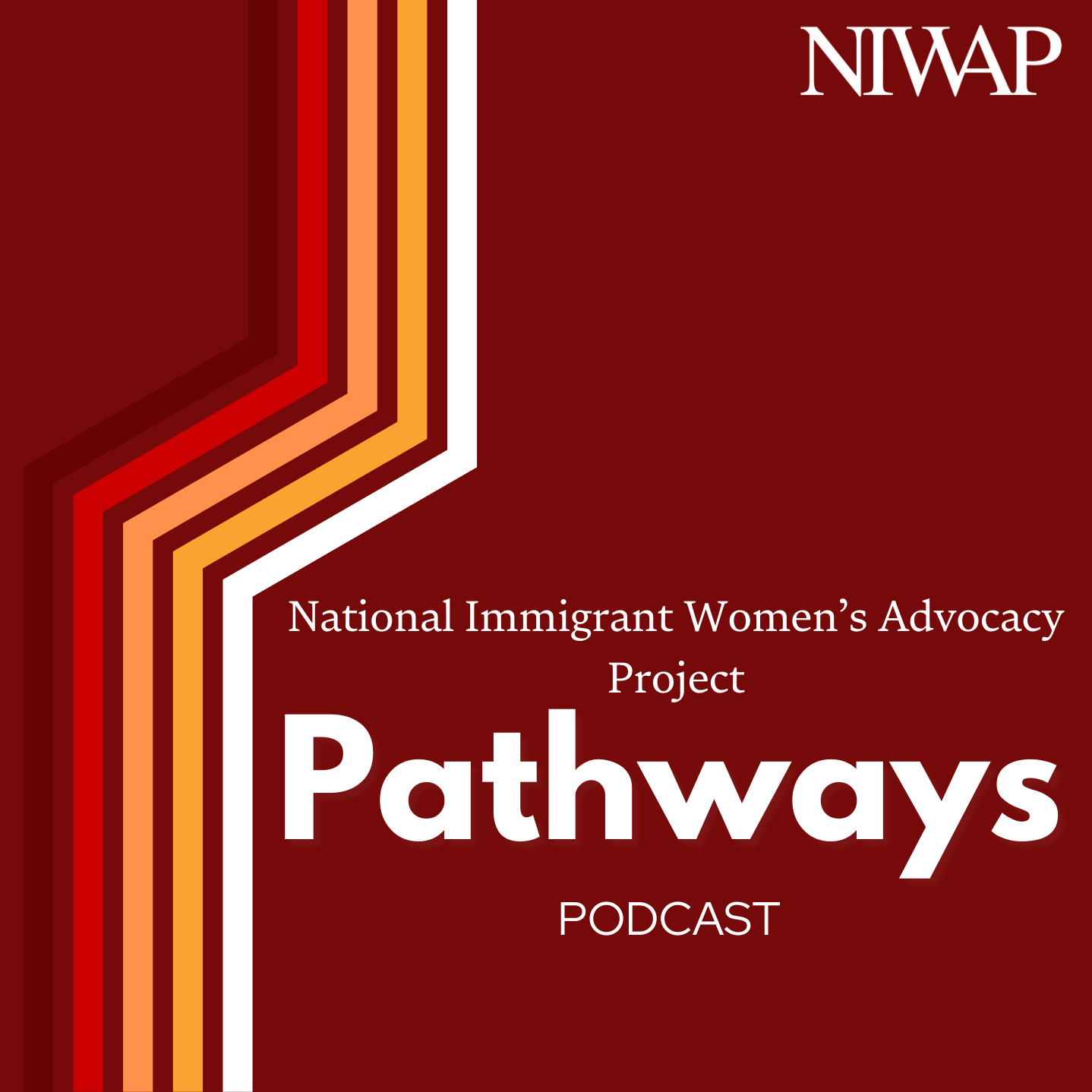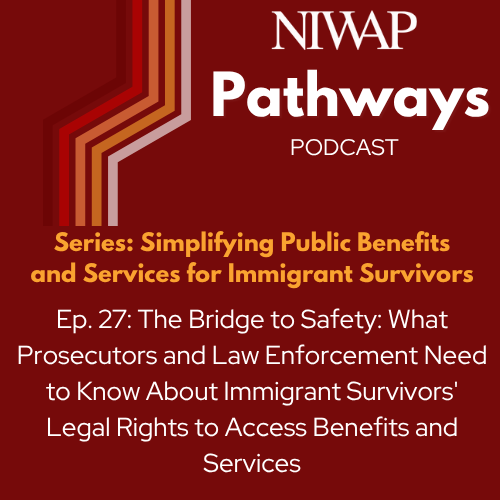Pathways

Pathways
Podcast Description
A Podcast by NIWAP at American University Washington College of Law
NIWAP (pronounced new-app) at American University Washington College of Law was formed to educate, train, offer technical assistance and public policy advocacy, and conduct research that will assist a wide range of professionals working at the Federal, State, and local levels who work with and/or whose work affects immigrant women and children. Our work is designed to promote the development, implementation, and use of laws, policies, and practices that benefit immigrant women and children.
Podcast Insights
Content Themes
Explores critical themes around immigrant rights, language access, and legal support with episodes focusing on trial preparation for U-Visa applicants, best practices for law enforcement when engaging with immigrant victims, and the intricacies of U-Visa and T-Visa processes.

A Podcast by NIWAP at American University Washington College of Law.
The National Immigrant Women’s Advocacy Project, NIWAP (pronounced new-app) at American University Washington College of Law was formed to educate, train, offer technical assistance and public policy advocacy, and conduct research that will assist a wide range of professionals working at the Federal, State, and local levels who work with and/or whose work affects immigrant women and children. Our work is designed to promote the development, implementation, and use of laws, policies, and practices that benefit immigrant women and children.
In this final episode on benefits and services for immigrant domestic and sexual violence survivors, Director Leslye Orloff, Assistant Director Rafaela Rodrigues of NIWAP at American University Washington College of Law, and Elliott Casey from the Virginia Commonwealth’s Attorneys’ Services Council continue their discussion with a focus on the importance of victim access to benefits and services from the perspective of law enforcement and prosecutors. The speakers cover key dos and don’ts when assisting immigrant victims with accessing benefits and services, and address questions about how prosecutors’ discovery obligations align with the support they provide to survivors—helping victims achieve safety, economic stability, and greater cooperation in criminal investigations and prosecutions.
More information on

Disclaimer
This podcast’s information is provided for general reference and was obtained from publicly accessible sources. The Podcast Collaborative neither produces nor verifies the content, accuracy, or suitability of this podcast. Views and opinions belong solely to the podcast creators and guests.
For a complete disclaimer, please see our Full Disclaimer on the archive page. The Podcast Collaborative bears no responsibility for the podcast’s themes, language, or overall content. Listener discretion is advised. Read our Terms of Use and Privacy Policy for more details.